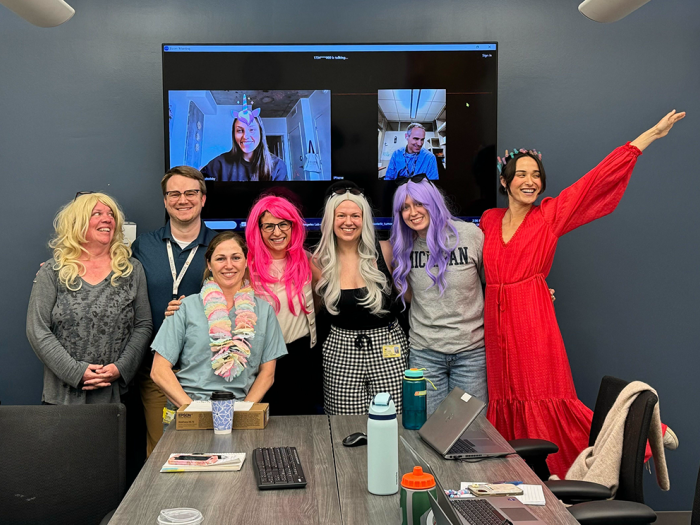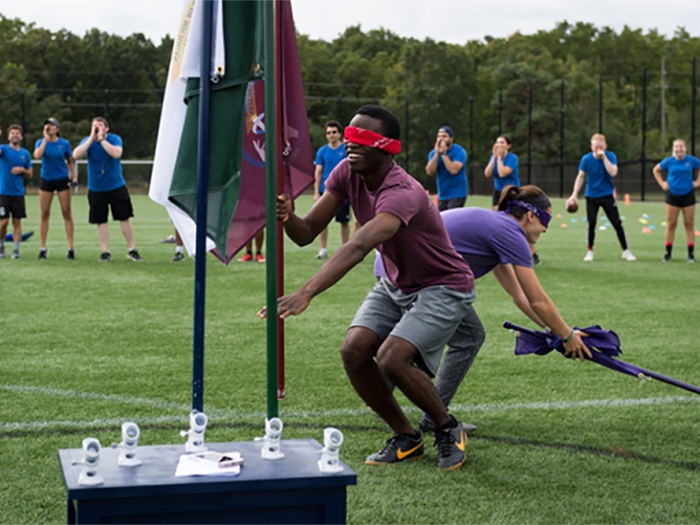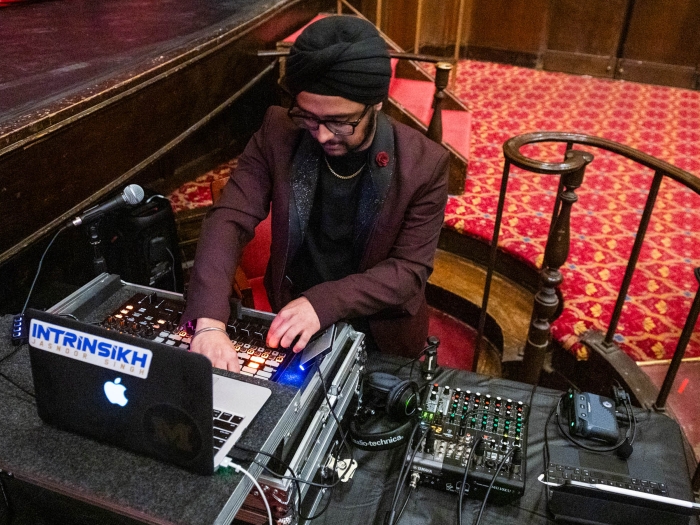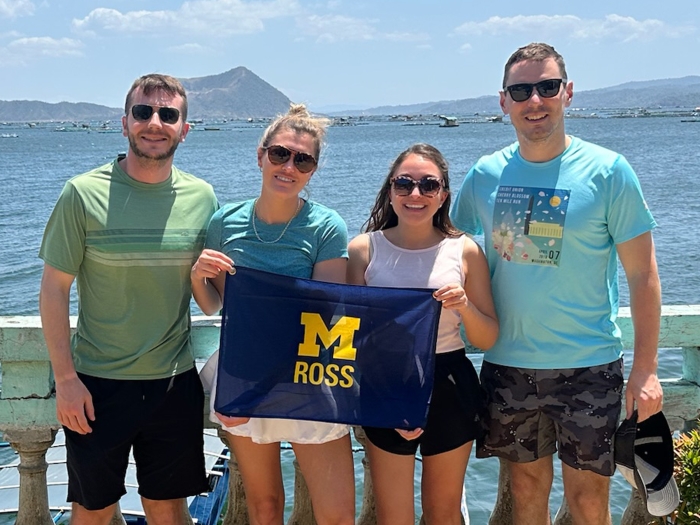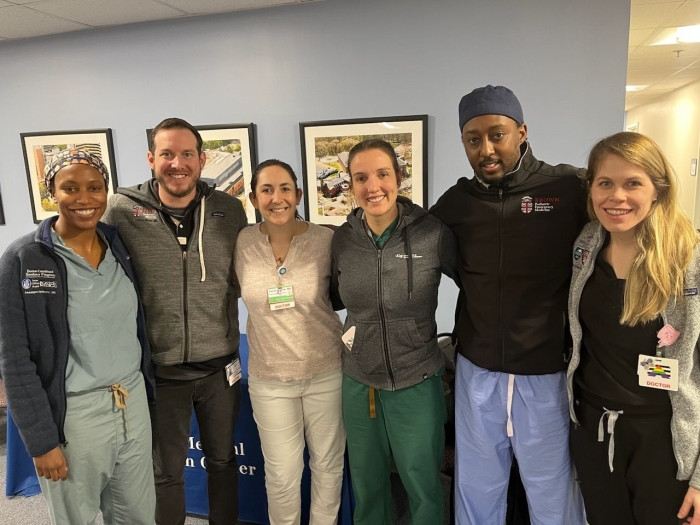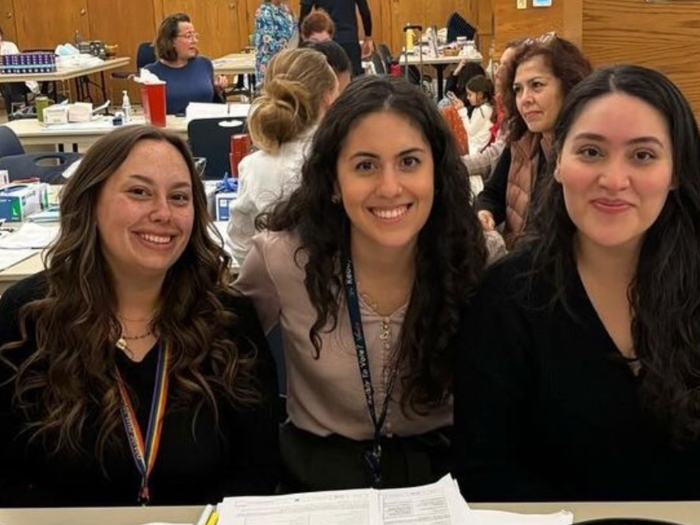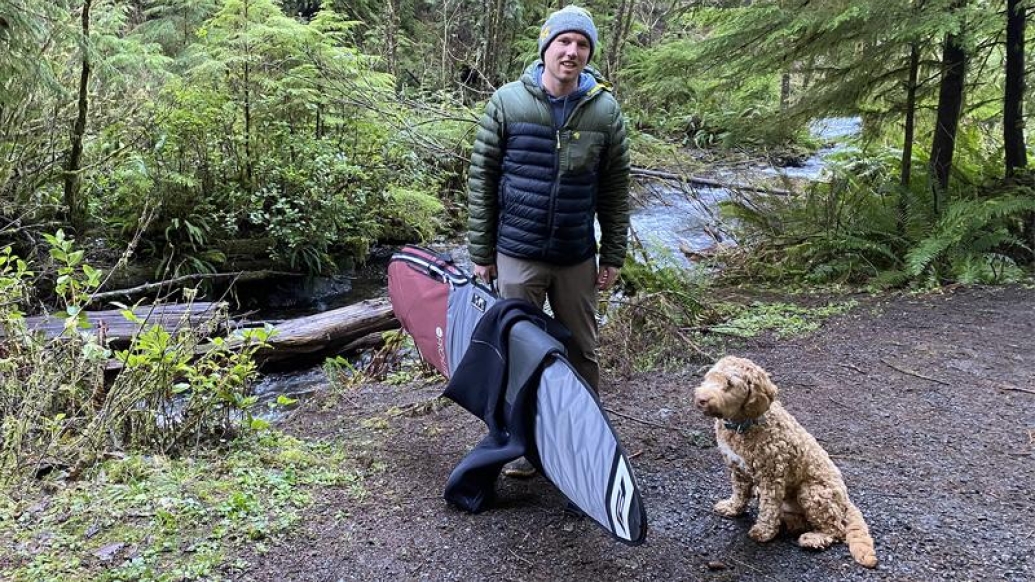
Brendan's Michigan Answer: I have been able to build on my background in education to improve the learning experience for medical students via entrepreneurship and research.
Fourth-year medical student Brendan Appold (he/him/his) grew up in Islip, NY, and graduated from Stanford University in 2010. During his time at Michigan Medical School, Brendan has enjoyed the experiential learning of clinical training, and finds working closely with patients on clinical rotations very impactful. His research activities at Michigan have been focused around medical education through evaluating the perceptions and impact of two learning initiatives: Second Chance Quizzing and Problem Based Oral Case Presentations.
His Capstone for Impact project, Study Buckets, is an online tool to assist medical students by enabling active learning in a conceptual framework. The project has gained traction with peers and researchers at UCLA, and has enabled students to learn more efficiently and effectively.
What called you to explore a career in medicine?
I originally did not plan to pursue a career in medicine. As a first generation college student, I originally focused my efforts around improving education, as a Teach for America teacher, and then through education technology. While I enjoyed my work in education technology, I missed the connections that I was able to build with students as a teacher. Around this time, my aunt was battling cancer, which provided a window into the extent of humanity in medicine; for example, given she could not attend my cousin's destination wedding, her team arranged for a ceremony to take place in the hospital. I realized that through medicine I could combine my interest in science, my passion for teaching, and desire to innovate to improve the lives of others.
What is one thing you wish you would have known before or while going through the medical school application process?
I will approach this question from a slightly different angle to provide advice for those on the journey to medical school: stay true to your passions. Though I had no idea I would eventually apply to medical school when I committed to Teach for America, my time in the classroom informed - and was an ideal preparation for - my aspirations to serve young people as a child and adolescent psychiatrist. Also, I leaned on my experience in education technology to create Study Buckets as my Capstone for Impact project. For those questioning whether to pursue a passion ahead of medical school, I recommend considering the following quote from Steve Jobs: “You can’t connect the dots looking forward; you can only connect them looking backwards. So you have to trust that the dots will somehow connect in your future.”
What have been your favorite parts or features of the med school curriculum so far, and why?
I really appreciate that Michigan condensed the preclinical curriculum to expedite core clinical rotations to our M2 year. Not only did this allow me the opportunity to work with patients sooner, but it opened up the last 1.5 years of medical school to explore electives, conduct research, partake in away rotations, and work on my Capstone for Impact project.
Briefly describe your Capstone for Impact project and what you’ve gained from this process.
I created Study Buckets to help medical students learn more efficiently and effectively. Study Buckets is an online study tool that aims to enable active learning in a conceptual framework (i.e., flashcards meet concept mapping). I collaborated with software engineers and designers to build the application, and populated it with high-yield content that I distilled while studying for shelf exams and Step 2. The tool particularly excels in enabling learners to compare and contrast characteristics amongst related diseases, drugs, care timelines, etc. Since launching Study Buckets, a few hundred of my classmates signed up for accounts and shared invaluable feedback. Additionally, the tool resonated with researchers at UCLA's Bjork Learning and Forgetting Lab, who are currently conducting studies to evaluate the efficacy of reviewing material via Study Buckets versus more traditional study methods, such as re-reading from a textbook.
How would you describe your clinical training and/or what aspects of your clinical training have been most impactful and why?
I believe experiential learning is particularly powerful, so I really appreciated having more time for clinical rotations given our expedited pre-clinical training. My clinical rotations exemplified the “Midwest-nice” phenomena: I found everyone to be respectful and supportive of my learning, and gracious when I stumbled - including my peers. I particularly enjoyed my Internal Medicine Sub-Internship with the Hospitalist service, where I worked 1:1 with an attending for four weeks to care for patients. Direct, close supervision while carrying out intern level responsibilities accelerated my training and made me feel confident moving toward residency.
Describe your favorite elective and why.
I chose the “Patients and Populations” concentration for my branch years as I aim to follow my patients longitudinally as a future psychiatrist, and am also interested in proactive ways to facilitate mental health more broadly amongst populations. Through this concentration, I partook in a longitudinal clinic with Dr. Daniel Shumer, a pediatric endocrinologist who serves as the medical director of the Child and Adolescent Gender Clinic at Mott Children's Hospital. Over the course of ten clinic half-days spanning several months, I had the privilege to learn from gender-diverse pediatric patients, and the opportunity to capitalize on my training to help alleviate gender dysphoria through hormonal therapy.
Share the research activity(ies) you’ve become involved in at Michigan.
My research activities at Michigan have been focused around medical education through evaluating the perceptions and impact of two learning initiatives:
Second Chance Quizzing: To help increase student wellness and capitalize on assessment as a tool for retention, the Office of Evaluation and Assessment (E&A) team initiated second-chance quizzing with my medical school class. Briefly, second-chance quizzing provides medical students with two assessment attempts for a given content area, with an interim period to enable reflection and additional studying. As a first year medical student and prior educator, I appreciated this mastery-based grading system, not only to reduce exam-induced stress, but for the additional retrieval practice. Consequently, I reached out to the E&A team to see if I could contribute to research around the impact of second-chance quizzing. I was subsequently invited to analyze usage, outcomes, and survey data and co-present at a regional conference. This work informed a later presentation at a national AAMC conference and a publication in a major journal.
Problem Based Oral Case Presentations: Dr. Sanjay Saint, the Chief of Medicine at the Ann Arbor VA, served as a preceptor for my internal medicine clerkship and introduced a novel format for presenting patients during rounds (as an alternative to the traditional SOAP format). As a learner, I observed a number of benefits, including a greater focus on data integration, enhanced learning from classmates, and efficiency. I also noticed the extent to which oral case presentations are fundamental to patient care and learner education. Accordingly, I teamed up with Dr. Ashwin Gupta, the Section Chief of Hospital Medicine at the Ann Arbor VA, to initiate a survey-based study to assess learner (medical students and residents) preference between this novel format and SOAP, and to compare perceptions of the efficacy of each format along ten functionality domains. The study resulted in an abstract presentation at a national conference and a manuscript which is awaiting peer review. Overall, this project provided an opportunity to build upon my previous experience assisting with research to initiate and lead a study on an innovation that has potential to benefit learners and patients.
In what ways has your experience at UMMS lived up to what you expected when you decided to enroll here, or how has Michigan been a good fit for you?
Through a flexible curriculum and ample access to mentorship, Michigan has empowered me to be a changemaker as a medical student, rather than encouraging me to simply put my head down and study for now and wait until later in my career to improve the field of medicine.

Clinical Associate Professor
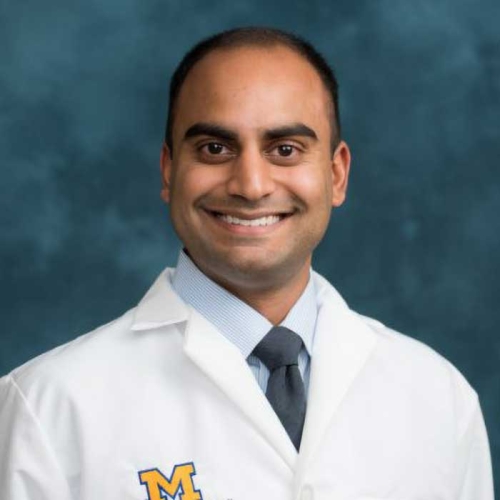
Clinical Associate Professor
